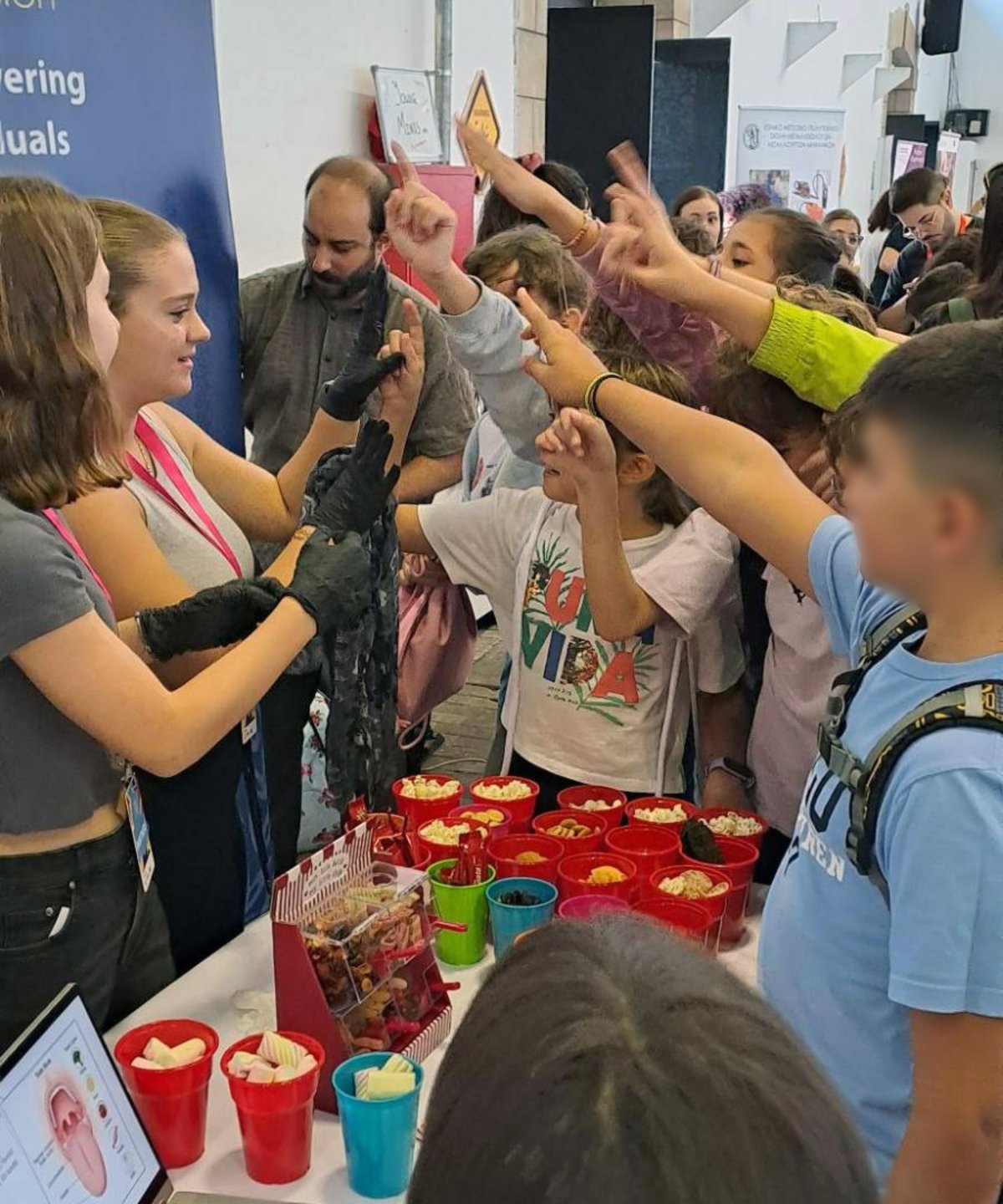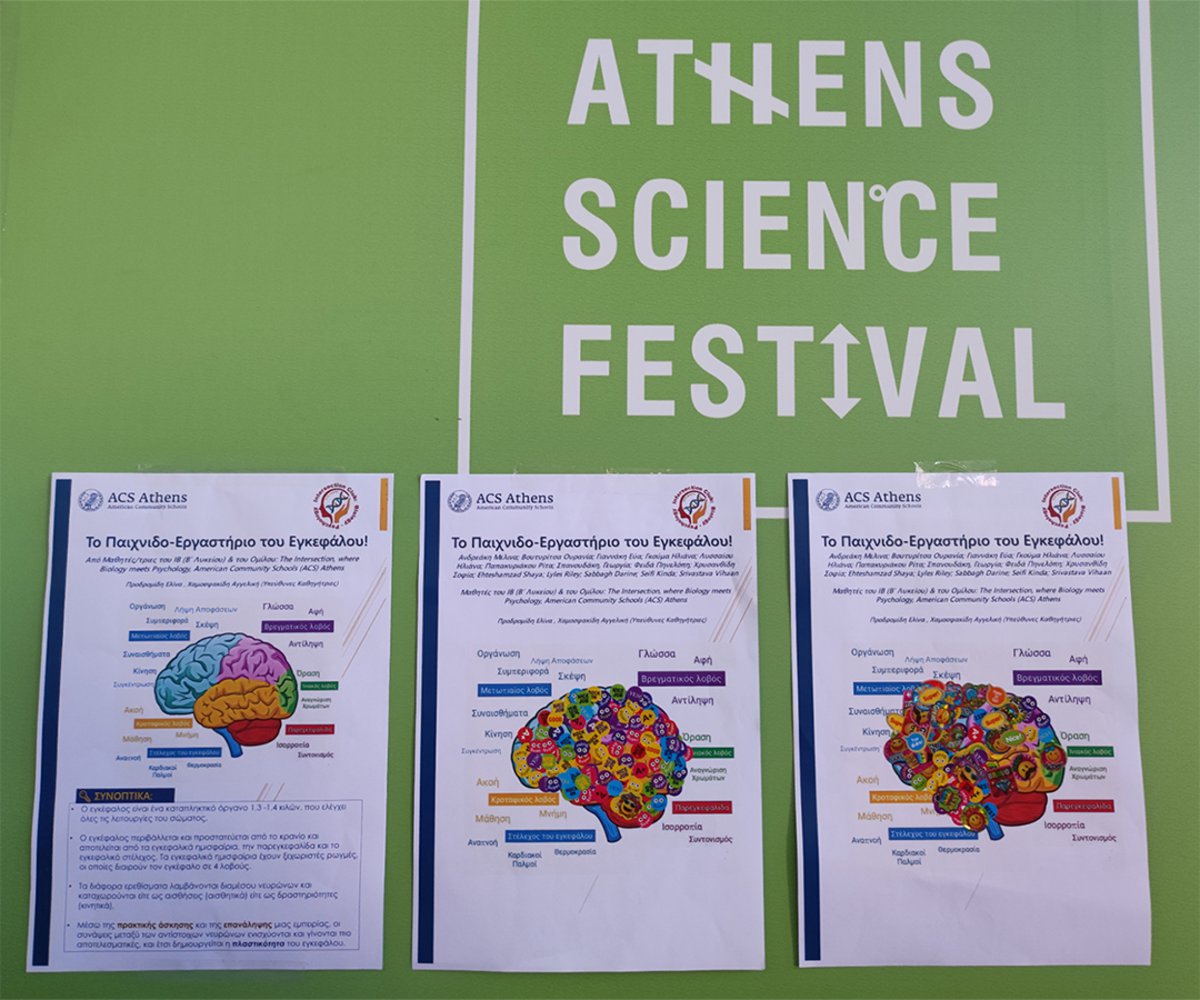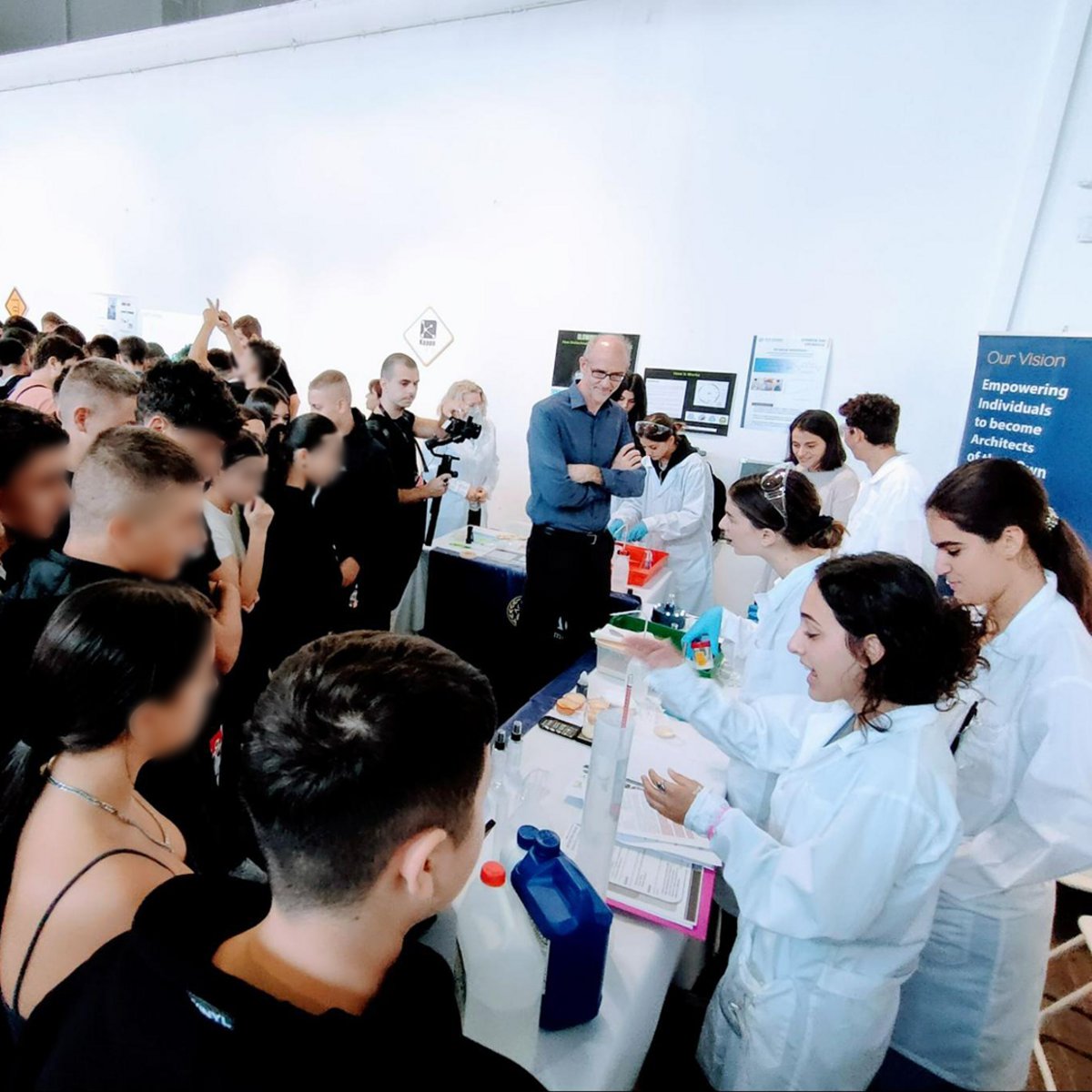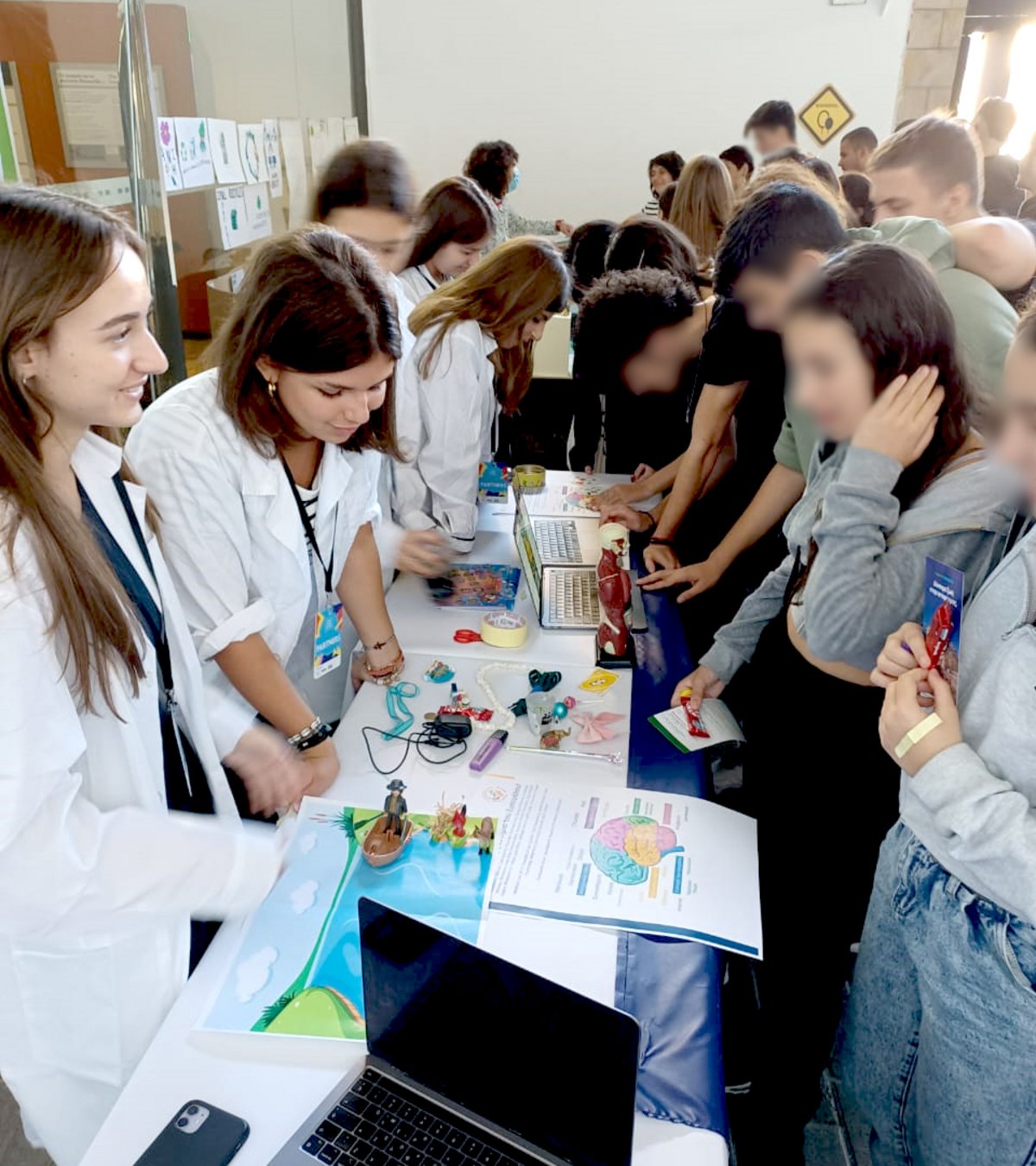American Community Schools of Athens (ACS Athens) had a dynamic presence at the Athens Science Festival 2023, which took place between 10-12 October 2023 and invited everyone to explore the “magical” side of Science. Colors, Chemistry, Gastronomy, “Glowing” Bacteria, and a Journey…to the Mysteries of the Brain brought the audience together with Science in a creative and fun way!
A sense of gourmet science!
Does the tongue determine what we taste? Do other senses play a part? Did you ever think about why you cannot taste properly when you have a cold? How is the message of taste carried to the brain? In this interactive session, participants learned more about how our senses are connected, especially smell and taste, and how the message of taste is sent to the brain.
The team consisted of the Middle School Science Teachers Theofilou Evangelia, Dimitrios Konstantopoulos, and Christina Bakoyannis, and five 8th-grade students from the ACS Athens Middle School Science Club: Maria Evangelia Magana, Ioanna Maligoudi Manousou, Natalia Papadoglou, Atalanta Psaropoulos, and Antonia Simigiannis.
The Brain-Game Workshop!
What does the brain look like, and how does it function? What are the key brain powers, and how can we improve them? Our IB Biology and Psychology students, as well as members of the Intersection Club, where Biology meets Psychology, were the ones to conceive and create fun and motivating games related to three brain powers: memory, thinking, and attention (focus). Through this activity, participants realized that by practice and repetition of an experience, the connections between neurons are strengthened and become more effective, thus creating brain “plasticity.” The team consisted of eight 11th Grade students: Sofia Chrysanthidi, Shaya Ehteshamzad, Eva Giannaki, Iliana Gkouma Nikandrou, Iliana Lyssaios, Rita Papakyriakou, Georgia Spanoudaki, and Ourania Voutyritsa, guided by Dr. Elina Prodromidi, Science Division Chair and ACS faculty and Ms. Angela Chamosfakidis, ACS Faculty, both Intersection Club Advisors.
“Glowing” Bacteria - How Biotechnology is Changing the World
IB Biology student Dora Stamouli presented her Extended Essay project under the supervision of Dr. Natalie Mitchell, ACS Faculty, where she transformed a non-pathogenic E. coli strain with a DNA plasmid that codes for Green Fluorescent Protein (GFP) derived from jellyfish. GFP allows the bacteria to glow bright green under UV light and can be used as a marker for genetic engineering experiments. The audience at the festival was able to see the bacteria before and after having the ability to glow, learned about this 2008 Nobel Prize-winning plasmid, the “Central Dogma” of Molecular Biology: DNA-mRNA-Protein, as well as being introduced to the concept of how genetic engineering of bacteria can produce valuable human medicines like insulin, monoclonal antibodies, and vaccines.
Making a hand sanitizer at school: from production and packaging to labeling and marketing
How is a hand sanitizer made from scratch all the way to the final packaged product? Under the guidance of Dr. Ioannis Kerkines and Mr. Spyros Arsenikos, ACS Faculty, 11th-grade students Sofia Floriou, Michaela Saridaki, Jia Ling Guo, and Haoyang Zhong, representing last year’s 10th-grade class presented to visitors the process of producing a chemical product that we use in our daily lives. Taking on all stages, from mixing the raw materials and performing quality control checks to packaging in bottles, creating labels, and marketing the product, students showed how a collaborative and creative science project helps them gain practical experience and understand how chemical substances are transformed into useful everyday products.
Chemistry and colors
The change of colors in chemical reactions is always impressive! What secrets does it hide, though? 12th grade IB (International Baccalaureate) students of ACS Athens Antonis NIkoletopoulos, Eva Karagkou, and Danai Dafflon explored these secrets with impressive Chemistry experiments by presenting their IAs (Internal Assessment projects) under the supervision of Dr. Ioannis Kerkines, ACS Faculty and Ms. Vicky Poulou, ACS Lab Specialist, and provided ..."colorful" answers to questions such as: When does a cake turn sour? What role does air play in chemical reactions? And how is it possible for a chemical reaction to be 'indecisive'?







